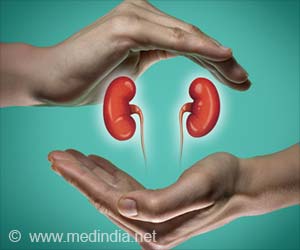Microplastics in the bloodstream may cause inflammation, heart disease, and neurological disorders like Alzheimer's.

- Microplastics found in blood can trigger inflammation, leading to heart disease
- Microplastics may penetrate the blood-brain barrier, contributing to neuroinflammation
- Studies show microplastics in everyday food items like salt, sugar, and water
Microplastic Contamination in Food
The Food and Agriculture Organization (FAO) also recently published a paper that discovered microplastics in basic foods such as sugar and salt. The ongoing Indian initiative on microplastic contamination in food intends to fill this vacuum by giving critical insights about exposure levels among Indian consumers. A significant study published in Environment International in 2022 discovered microplastics in human blood for the first time, raising concerns about the health dangers linked with these particles. The study looked at blood samples from 22 anonymous donors and found microplastics in 17 of them. The samples contained a high concentration of polyethylene terephthalate (PET), which is typically found in beverage bottles, as well as polystyrene (PS), which is used in food packaging (1✔ ✔Trusted SourceDiscovery and quantification of plastic particle pollution in human blood
Go to source).
Long-Term Effects of Microplastic Exposure
According to Dr. Praveen Gupta, Principal Director & Chief of Neurology at Fortis Hospital, "Once microplastics enter the bloodstream, they can cause an immune response, resulting in chronic inflammation." Chronic inflammation has the ability to disrupt normal biological activities and is closely linked to a variety of major health conditions, including cardiovascular disease and neurological disorders. The long-term effects of microplastic exposure are becoming a major issue for public health.A 2023 study by researchers from the University Medical Center Utrecht in the Netherlands investigated the link between microplastics and cardiovascular health. They discovered that microplastics can aggregate in blood vessels, contributing to plaque formation, which is a crucial element in atherosclerosis- a disorder that causes arteries to shrink and harden. Ultimately, the risks of cardiovascular disorders, including heart attacks, rise (2✔ ✔Trusted Source
Microplastics: A Matter of the Heart (and Vascular System)
Go to source).
"Foreign particles in the bloodstream may cause inflammation, oxidative stress, and blood vessel damage. Increased exposure to microplastics over time might cause serious harm, contributing to cardiac diseases. Given the global growth in cardiovascular disorders, knowing the significance of environmental variables such as microplastics is critical," said Dr. Shilpa Gupta, Associate Director of Pathology at Asian Hospital.
In addition to cardiovascular problems, microplastics have been found to have the potential to harm brain function. "We're seeing more evidence that neurological disorders like Parkinson's, Alzheimer's, and even brain strokes are linked to environmental pollution and toxicity.
Microplastics have emerged as a major threat. Once in our bloodstream, these tiny particles can pass the blood-brain barrier, undermining the protective screen that keeps hazardous compounds out of our brain. According to studies, microplastics may contribute to neuroinflammation, an immunological reaction in the brain associated with a variety of neurological diseases. "We have evidence that microplastic particles interfere with neurons, causing inflammation and, over time, accelerating cognitive decline," said Dr Praveen Gupta.
"Microplastics pose an underestimated threat to brain health," stated Dr. Bhaskar Shukla, Senior Consultant in Neurology at PSRI Hospital. "The blood-brain barrier is highly selective, but microplastic particles are small enough to bypass this defense." Over time, the accumulation of these particles may contribute to neurodegenerative disorders.
Microplastic Contamination in India
India has increasingly recognized the problem of microplastic contamination, and Indian experts have performed various studies on the effects of microplastics on health and the environment. In 2020, a study conducted by the Institute of Advanced Study in Science and Technology (IASST), Guwahati discovered microplastic contamination in Assam's freshwater bodies.Reducing Microplastic Prevalence in Food
Given the rising body of data linking microplastics to major health consequences, the experts emphasized the need for immediate action. Reducing plastic manufacture and limiting single-use plastics are essential measures toward reducing the prevalence of microplastics. Furthermore, regulatory organizations must impose stronger guidelines for the use of plastics in consumer goods and promote the development of safer alternatives.According to the experts, the government has taken certain measures, but more work is needed to solve the issues associated with this public health hazard.
The government's project, "Micro- and Nano-Plastics as Emerging Food Contaminants," is being carried out in collaboration with institutions such as the CSIR-Indian Institute of Toxicology Research (Lucknow), ICAR-Central Institute of Fisheries Technology (Kochi), and Birla Institute of Technology and Science (Pilani). The initiative's goal is to provide proven technologies for identifying microplastics in diverse food products and to estimate their prevalence and exposure levels in India.
"From heart disease to neuroinflammation, the hidden risks of microplastics could have far-reaching ramifications for public health. The dilemma is broad, affecting the environmental, industrial, and healthcare sectors. We require comprehensive regulations that address plastic pollution and highlight the health dangers linked with long-term exposure to microplastics. Only by a collaborative effort can we reduce the impact on human health," said Dr. Ashish Agarwal, Director of Cardiology at Aakash Healthcare.
References:
- Discovery and quantification of plastic particle pollution in human blood - (https://pubmed.ncbi.nlm.nih.gov/35367073/)
- Microplastics: A Matter of the Heart (and Vascular System) - (https://pubmed.ncbi.nlm.nih.gov/36830801/)
Source-Medindia














